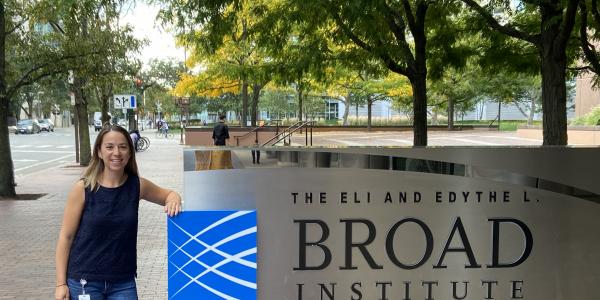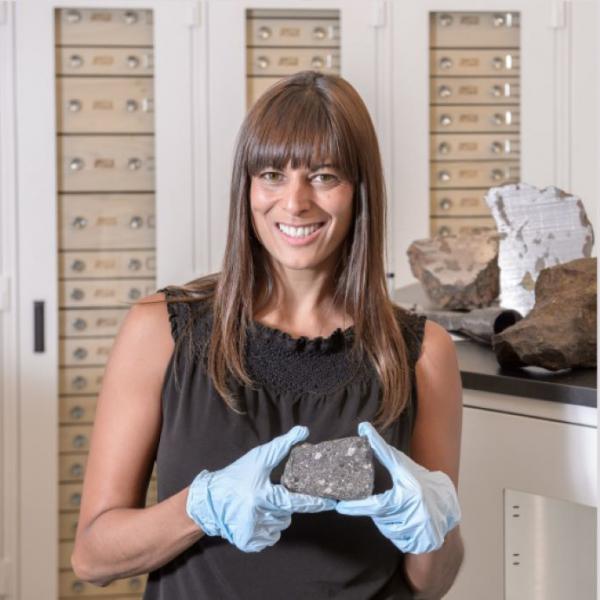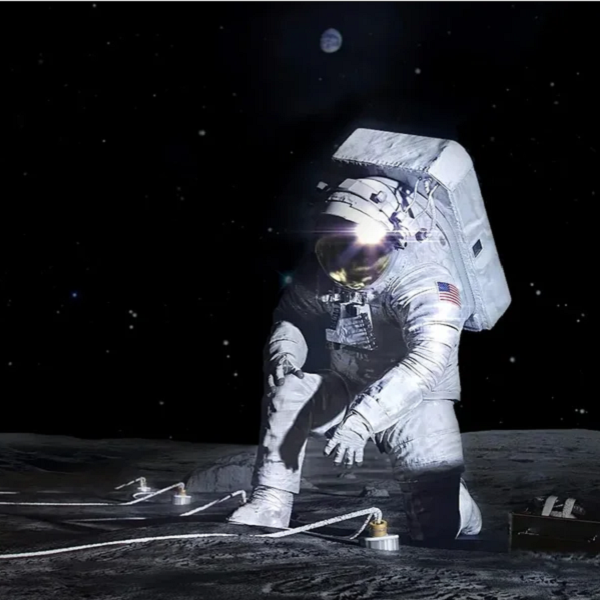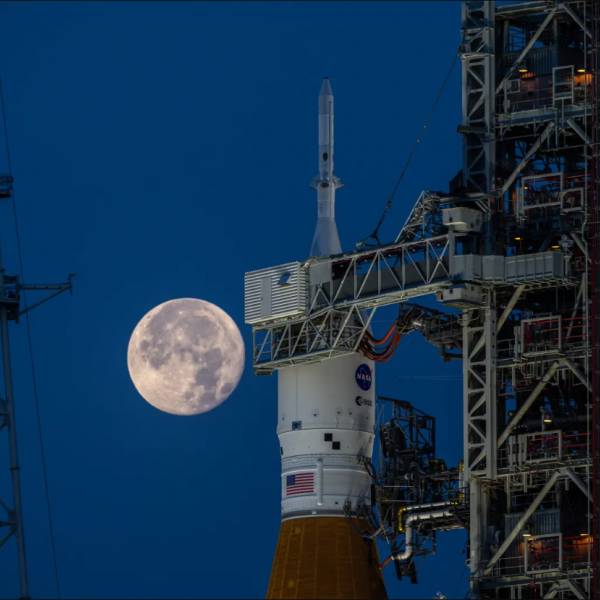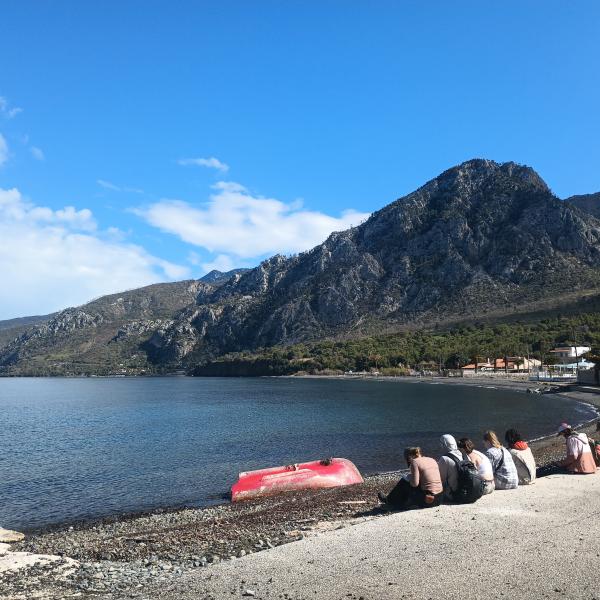For Rachel Gesserman, MA 2011, science education and outreach is a passion as well as a practice. “As a graduate student, I participated in several outreach opportunities,” Gesserman said. For the local community, she co-hosted an event for women in science and, on a different occasion, gave a public lecture about the geology in St. Louis.
Even during her field work, Gesserman found public engagement to be an essential component of science. “On a project in Minnesota, I was knocking door-to-door, asking people for permission to install a seismic station on their property,” she recalled. “Being able to communicate about why the work was important and convince them to let us do it, I saw as another form of outreach.”
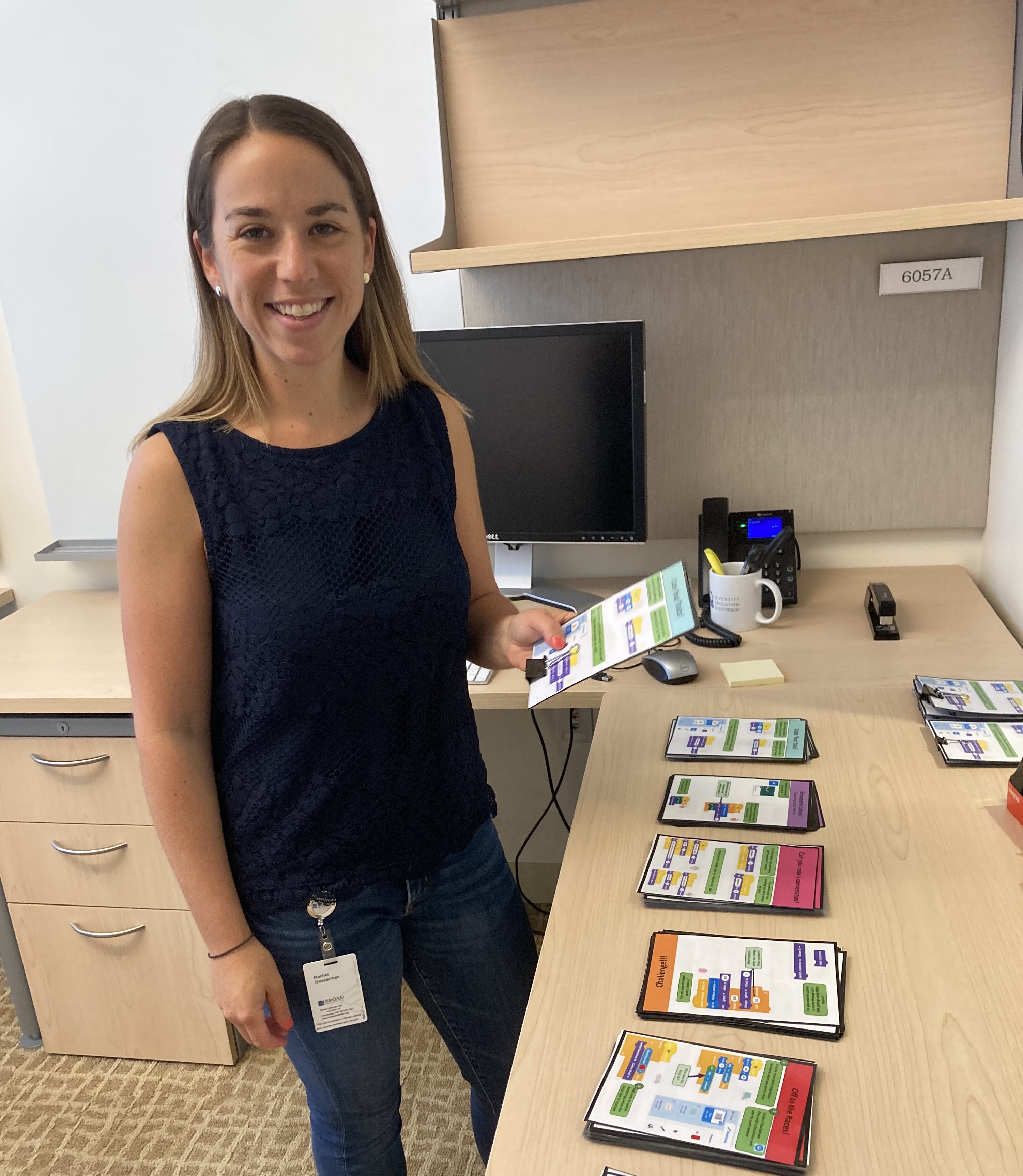
Gesserman now works as the Education and Outreach Program Manager for the Broad Institute of MIT and Harvard in Cambridge, MA. But during graduate school, she wasn’t sure how to turn her passion for science outreach into a career. With the support of her advisor, Doug Wiens, Gesserman was able to explore her options while keeping them open.
“Instead of leaving the program, Doug suggested taking a leave of absence to go experience what a career in education and outreach might be like,” Gesserman said. “I ended up getting a graduate internship at NOVA, the science show on PBS. I worked in their education group, which focused on creating digital resources for teachers to use in their classrooms.”
When a permanent position opened up at NOVA, Gesserman decided to go for it. She graduated with her Master’s degree from WashU and continued at NOVA until transitioning to her current position, which she describes as more student centered.
“I moved from working primarily on creating classroom resources to programming that focuses on providing access and exposure to science experiences for middle and high school students,” Gesserman noted. “A large component of this is connecting students with a diverse group of scientists to help change their perceptions of who scientists are and what scientists do.” These types of student-focused programs that fuel interest in STEM at an early age are where Gesserman feels she can make the most difference.
In her current role, Gesserman oversees all K-12 programming. She does everything from the logistics of designing and executing science education programming to supporting the scientists who volunteer their time to share their research with students. A key goal: Help scientists better communicate their work to young students by making it accessible and relevant.
During the institute’s summer research program for high school students, Gesserman splits her time between students and scientists. With students, Gesserman supplements their research experience with programming focused on career exploration, discussions about imposter phenomenon and learning from failure, and training sessions on how to create and present scientific posters. With the volunteer scientists, Gesserman’s sessions focus on effective mentoring strategies, including topics like setting expectations, providing feedback, and increasing students’ self-efficacy. During the academic year, Gesserman works closely with local educators to organize a district-wide program that brings Broad Institute scientists into every eighth-grade classroom in Cambridge. Gesserman works with scientist volunteers to help them develop interactive presentations that connect what students are learning in class to the research they do at the institute.
Looking ahead, Gesserman is excited to see science outreach continuing to grow as a field, creating opportunities for people who might not have been able to see themselves in traditional scientific roles. “There’s now a bigger emphasis on helping trainees learn about careers available outside of academia for people with science backgrounds,” she said. “I really enjoy meeting students, forming relationships with them, and getting to see how the experiences they have with the Broad Institute impact their trajectories. Especially with students who never imagined that science was a career option for them, it’s so meaningful to see that direct outcome.”

